Background / Application
I have a MySQL database containing a table of rentable properties and a table of bookings for these properties. There is also a search feature for finding available properties between two provided dates. When searching, the user can enter the start date, the amount of days they wish to stay, and a date flexibility of up to +/- 7 days. A booking can start on the same day as another booking ends (party 1 leaves in the morning, party 2 arrives in the evening).
I am having difficulty implementing the flexibility feature efficiently.
Schema
CREATE TABLE IF NOT EXISTS `property` (
`id` bigint(20) NOT NULL AUTO_INCREMENT,
`name` varchar(60) COLLATE utf8_unicode_ci DEFAULT NULL,
PRIMARY KEY (`id`)
) ENGINE=InnoDB DEFAULT CHARSET=utf8 COLLATE=utf8_unicode_ci;
CREATE TABLE IF NOT EXISTS `property_booking` (
`id` bigint(20) NOT NULL AUTO_INCREMENT,
`property_id` bigint(20) DEFAULT NULL,
`name` varchar(60) COLLATE utf8_unicode_ci DEFAULT NULL,
`date_start` date DEFAULT NULL,
`date_end` date DEFAULT NULL,
PRIMARY KEY (`id`)
) ENGINE=InnoDB DEFAULT CHARSET=utf8 COLLATE=utf8_unicode_ci;
Sample Data
INSERT INTO `property` (`name`)
VALUES ('Property 1'), ('Property 2'), ('Property 3');
INSERT INTO `property_booking` (`property_id`,`name`,`date_start`,`date_end`)
VALUES (1, 'Steve', '2011-03-01', '2011-03-08'),
(2, 'Bob', '2011-03-13', '2011-03-20'),
(3, 'Jim', '2011-03-16', '2011-03-23');
Sample Scenario
The user selects that they want to start their stay on 2011-03-10, they want to stay for 7 days, and they have a flexibility of +/- 2 days. I have compiled an image that visualises the data and parameters below. (Red: Booking 1, Green: Booking 2, Stripes: Booking 3, Blue: Date range (2011-03-10, + 7 days and +/- 2 days flexibility))

Expected Result
Property 1 (Bookings available throughout date range)
Property 3 (Bookings available starting on 2011-03-08 or 2011-03-09)
Current Method
My current query checks for overlap for all 7 day date ranges within the total searchable date range, like this:
SELECT p.`id`, p.`name`
FROM `property` p
WHERE (NOT (EXISTS (SELECT p2.`name` FROM `property_booking` p2 WHERE (p2.`property_id` = p.`id` AND '2011-03-10' < DATE_SUB(p2.`date_end`, INTERVAL 1 DAY) AND '2011-03-17' > DATE_ADD(p2.`date_start`, INTERVAL 1 DAY)))))
OR (NOT (EXISTS (SELECT p3.`name` FROM `property_booking` p3 WHERE (p3.`property_id` = p.`id` AND '2011-03-11' < DATE_SUB(p3.`date_end`, INTERVAL 1 DAY) AND '2011-03-18' > DATE_ADD(p3.`date_start`, INTERVAL 1 DAY)))))
OR (NOT (EXISTS (SELECT p4.`name` FROM `property_booking` p4 WHERE (p4.`property_id` = p.`id` AND '2011-03-09' < DATE_SUB(p4.`date_end`, INTERVAL 1 DAY) AND '2011-03-16' > DATE_ADD(p4.`date_start`, INTERVAL 1 DAY)))))
OR (NOT (EXISTS (SELECT p5.`name` FROM `property_booking` p5 WHERE (p5.`property_id` = p.`id` AND '2011-03-12' < DATE_SUB(p5.`date_end`, INTERVAL 1 DAY) AND '2011-03-19' > DATE_ADD(p5.`date_start`, INTERVAL 1 DAY)))))
OR (NOT (EXISTS (SELECT p6.`name` FROM `property_booking` p6 WHERE (p6.`property_id` = p.`id` AND '2011-03-08' < DATE_SUB(p6.`date_end`, INTERVAL 1 DAY) AND '2011-03-15' > DATE_ADD(p6.`date_start`, INTERVAL 1 DAY)))));
On the sample dataset, it's reasonably quick, but on much larger datasets it's going to get pretty sluggish, even more so when you build the full +/- 7 day flexibility.
Does anyone have any suggestions as to how this query could be better written?